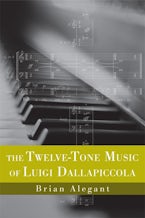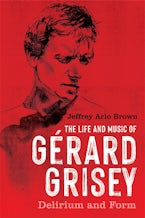
Title Details
238 Pages
22.8 x 15.2 cm
18 b/w, 46 line illus.
Series: Eastman Studies in Music
Series Vol. Number:
110
Imprint: University of Rochester Press
Narratives of Identity in Alban Berg's "Lulu"
- Description
- Contents
- Reviews
This book explores the crossroads between autobiographical narratives and musical composition in Alban Berg's Lulu, unveiling aspects of encoded social customs, gender identity, and personal experiences within musical structures.
Exploring the crossroads between autobiographical narrative and musical composition, this book examines Berg's transformation of Frank Wedekind's Erdgeist and Die Büchse der Pandora -- the plays used in the formationof the libretto for Lulu -- according to notions of gender identity, social customs, and the aesthetics of modernity in the Vienna of the 1920s and 1930s. While Berg modernized several aspects of the plays and incorporatedserial techniques of composition from Arnold Schoenberg, he never let go of the idealistic Wagnerian perspectives of his youth. In fact, he went as far as reconfiguring aspects of Richard Wagner's life as an ideal identity to beplayed out in the compositional process. In composing the opera, Berg also reflected on the most important cultural figures in fin-de-siècle Vienna that affected his worldview, including Karl Kraus, Emil Lucka, Otto Weininger, andothers.
Combining analysis of Berg's correspondence, numerous sketches for Lulu, and the finished work with interpretive models drawn from cultural studies and philosophy, this book elucidates the ways in which Berg grappled at the end of his life with his self-image as an "incorrigible romantic," and explains aspects of his musical language that have been considered strange or anomalous in Berg scholarship.
Silvio J. dos Santos isassistant professor of musicology at the University of Florida.
Exploring the crossroads between autobiographical narrative and musical composition, this book examines Berg's transformation of Frank Wedekind's Erdgeist and Die Büchse der Pandora -- the plays used in the formationof the libretto for Lulu -- according to notions of gender identity, social customs, and the aesthetics of modernity in the Vienna of the 1920s and 1930s. While Berg modernized several aspects of the plays and incorporatedserial techniques of composition from Arnold Schoenberg, he never let go of the idealistic Wagnerian perspectives of his youth. In fact, he went as far as reconfiguring aspects of Richard Wagner's life as an ideal identity to beplayed out in the compositional process. In composing the opera, Berg also reflected on the most important cultural figures in fin-de-siècle Vienna that affected his worldview, including Karl Kraus, Emil Lucka, Otto Weininger, andothers.
Combining analysis of Berg's correspondence, numerous sketches for Lulu, and the finished work with interpretive models drawn from cultural studies and philosophy, this book elucidates the ways in which Berg grappled at the end of his life with his self-image as an "incorrigible romantic," and explains aspects of his musical language that have been considered strange or anomalous in Berg scholarship.
Silvio J. dos Santos isassistant professor of musicology at the University of Florida.
Introduction
Between Schoenberg and Wagner
Berg as Wagner: In Pursuit of an Ideal Identity
Refiguring Tristan
The Bild Motif and Lulu's Idenity
Marriage as Prostitution
Masculine, Feminine, and "In-between": Geschwitz as neue Frau
Conclusion: Berg's Wagnerism
Notes
Bibliography
Index
Between Schoenberg and Wagner
Berg as Wagner: In Pursuit of an Ideal Identity
Refiguring Tristan
The Bild Motif and Lulu's Idenity
Marriage as Prostitution
Masculine, Feminine, and "In-between": Geschwitz as neue Frau
Conclusion: Berg's Wagnerism
Notes
Bibliography
Index
"Dr. dos Santos has not only contributed a uniquely compelling work to the existing body of literature on Berg's music, but he has also proved that fluency in multiple methodologies and fields of inquiry can give scholars access to analyses of unprecedented nuance and scope. Cultural historians will benefit from his work as much as theorists of early twelve-tone music." GERMAN STUDIES REVIEW
"Succeeds in demonstrating how very detailed and multifaceted the engagement is, in Berg's Lulu, with the presence of Wagner['s music] and with ideas related to that presence. We can hope that [Dos Santos's] monograph is the impetus for further new insights about Lulu and for Berg research generally." Kordula Knaus, DIE MUSIKFORSCHUNG
"[Santos has] much to say about the dramatic representation of Lulu herself, and the role of a tonality-acknowledging 12-tone technique in that representation. Makes good use of the multiplicity of recent work on Berg's manuscripts and other archival materials to outline a response to Wagner, and to modern life, that was more psychological (not excluding a possible element of erotomania) than philosophical or spiritual." Arnold Whittall, MUSICAL TIMES
"In Narratives of Identity in Alban Berg's 'Lulu,' Silvio dos Santos goes above and beyond prior Berg scholarship with inspired and admirably thorough research. This complex and significant volume, based on expert examination of Berg's score, is the most important study of Lulu's character to come across my path in many years. A compelling narrative, which promises to be of lasting importance to scholars, musicians, and the opera-loving public." Mark DeVoto, Tufts University
Hardcover
9781580464833
June 2014
$105.00 / £90.00
Ebook (EPDF)
9781580468497
June 2014
£24.99 / $29.95
Title Details
238 Pages
2.28 x 1.52 cm
18 b/w, 46 line illus.
Series: Eastman Studies in Music
Series Vol. Number:
110
Imprint: University of Rochester Press














